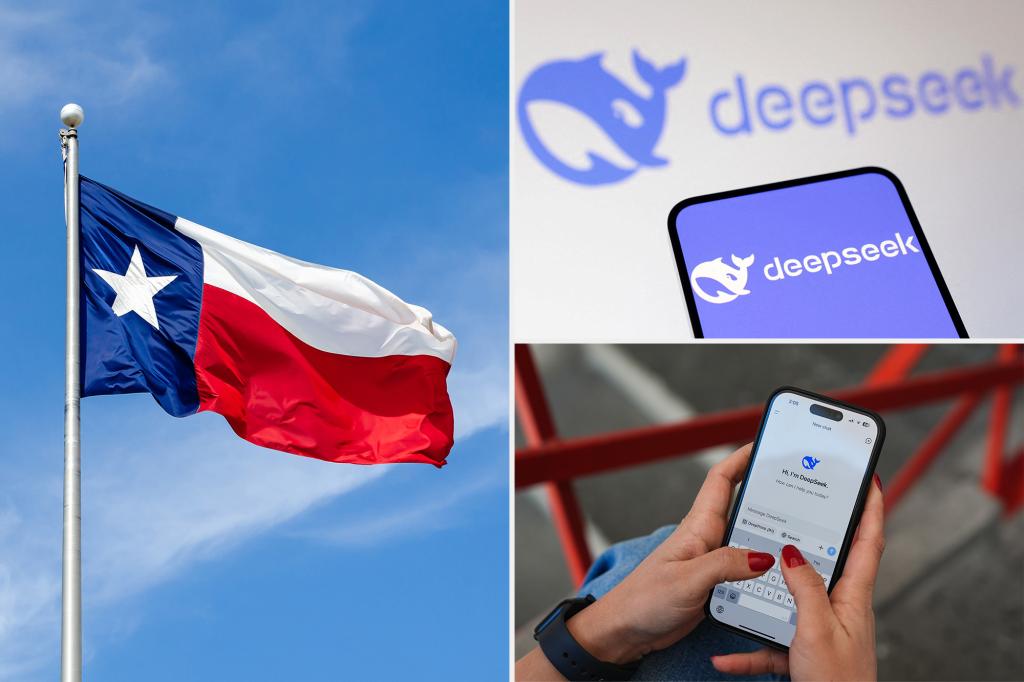Texas Governor Greg Abbott’s recent executive order banning the use of DeepSeek, RedNote, and Lemon8 on government-issued devices marks a significant escalation in the ongoing debate surrounding data security and the influence of foreign entities, particularly China, in the digital realm. This decision establishes Texas as the first state to formally block these specific Chinese applications, signaling a potential trend among other states grappling with similar concerns. The order highlights the growing apprehension surrounding the potential for data harvesting and the exploitation of sensitive information by foreign governments through seemingly innocuous applications.
DeepSeek, a rapidly emerging artificial intelligence platform, has garnered attention for its impressive performance and competitive pricing, even surpassing the capabilities of established players like OpenAI. However, its meteoric rise has been accompanied by serious security concerns, mirroring those that led to restrictions on TikTok. The app’s alleged practice of collecting and storing US user data in China, coupled with the legal obligation of Chinese companies to share data with the government upon request, creates a significant vulnerability for American users. This potential access to sensitive information by the Chinese Communist Party raises concerns about national security and intellectual property theft, prompting entities like the US Navy to preemptively block the application.
RedNote, also known as Xiaohongshu, gained popularity as a potential alternative to TikTok during the period when a ban on the latter seemed imminent. Functioning as a social media platform primarily in China and other East Asian countries, RedNote’s rise coincided with the uncertainty surrounding TikTok’s future in the US market. This highlights the interconnected nature of the digital landscape and the ease with which users can transition between platforms, emphasizing the need for comprehensive security measures that address the broader ecosystem of applications, rather than focusing on individual entities.
The inclusion of Lemon8 in the ban further underscores the focus on ByteDance, the Chinese parent company of both TikTok and Lemon8. This move indicates a broader concern about ByteDance’s influence and data collection practices across its portfolio of applications. By targeting multiple platforms owned by the same company, Texas is demonstrating a proactive approach to mitigating potential risks associated with a single entity, rather than reacting to individual app-specific concerns. This broader approach could serve as a model for future regulatory actions targeting companies with multiple platforms operating in sensitive data spaces.
The backdrop to this ban is the ongoing saga surrounding TikTok, which has faced scrutiny and restrictions under both the Trump and Biden administrations. The former president’s eleventh-hour intervention, delaying the sale of the app, added further complexity to the situation, while the current administration has maintained a cautious stance, culminating in the ban on government devices. This continued uncertainty highlights the challenge of balancing national security concerns with the economic and social impact of restricting popular applications. The ongoing negotiations and potential sale of TikTok to a US-based company like Microsoft underscore the complexities involved in navigating these geopolitical and economic considerations.
Governor Abbott’s decisive action reflects a growing trend among policymakers to prioritize data security and national security interests in the face of potential threats posed by foreign-owned applications. This move signals a significant shift in the regulatory landscape, with a greater emphasis on proactive measures to protect sensitive user data and critical infrastructure from potential exploitation. The long-term implications of this decision remain to be seen, but it sets a precedent for other states and potentially even the federal government to adopt similar measures, potentially reshaping the landscape of data security and international relations in the digital age. The ban also underscores the need for a nuanced understanding of the interconnected nature of the digital ecosystem and the importance of developing comprehensive strategies to address the evolving challenges posed by foreign-owned applications.

